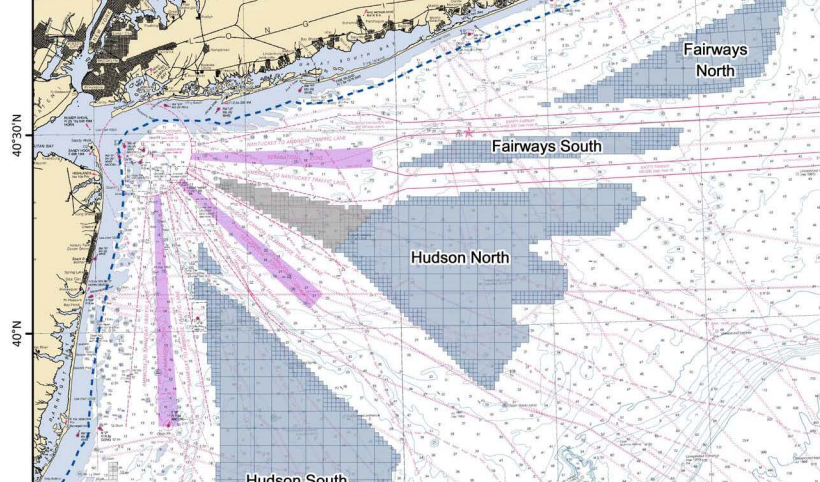The Trump administration faces strong opposition to offshore drilling among East Coast states, but also supports offshore wind energy as part of an “all of the above” U.S. energy strategy, Interior Secretary Ryan Zinke said Friday.
“There is a lot of opposition, particularly off the East Coast and the West Coast, on oil and gas,” Zinke said in speaking before the Business Network for Offshore Wind conference near Princeton, N.J., the Associated Press reported.
Apart from the governors of Maine and Georgia, other states have made their opposition clear, and can have a lot of leverage with state laws to prevent new oil and gas infrastructure from being built, said Zinke.

Interior Secretary Ryan Zinke speaking at the Business Partnership for Offshore Wind last week. Department of Interior photo.
As Zinke was meeting with officials from offshore wind companies, the federal Bureau of Ocean Energy Management outlined plans to open more areas for wind energy leasing in the New York Bight and southern New England.
The agency published a call for information and nominations to help officials decide how much sea floor to offer in future leasing between the New York and New Jersey shorelines. Four areas — dubbed Fairway North, Fairway South, and Hudson North and Hudson South — are shown on maps released Friday, wedged between the traffic separation scheme shipping lanes out of New York Harbor.
Those areas, totaling 2,047 square nautical miles, expand potential wind energy zones outlined by the New York State Energy Research and Development Authority. New York Gov. Andrew Cuomo has set a goal of developing 2.4 gigawatts of offshore energy for his state by 2030.
The Hudson North area extends east and south from Statoil’s Empire Wind lease, 79,350 acres that if built will be an impressive sight to mariners heading in and out from Ambrose Light. NYSERDA officials say they are assembling advisory groups from the maritime and fishing industries to advise them on how to avoid spatial and other conflicts.
Commercial fishermen have gone to court seeking to block the Statoil project, and insist the state and federal government must do more to protect fisheries. Zinke acknowledged that issue and said it will be part of BOEM’s deliberations, Newsday reported.
“We don’t want to cripple or hurt the fishing industry,” he said. “They are concerned. Fishing is a very important industry.”
Calls for information from BOEM are likewise seeking input on where future leases should be sited. The agency is consulting with the Coast Guard on how far turbines should be set back from shipping lanes, but BOEM will have a final decision on mapping the leases.
On Friday, BOEM also published a notice that it will again offer two offshore leases south of Massachusetts that went unclaimed in an earlier round. Those previous leases include one held by Deepwater Wind LLC, which this week announced intentions of building offshore service vessels and crew transfer vessels for its Revolution Wind project at Massachusetts shipyards.




